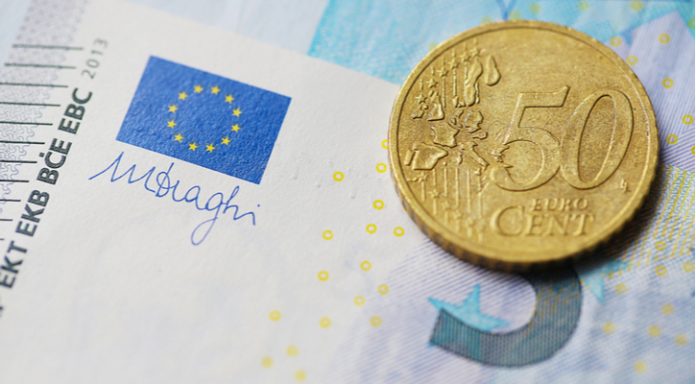Brexit woes and trade war nerves meant that the pound ended last week at more or less the same level that it started the week versus the euro. However, the pound is on the front foot as trading begins at the start of the new week, up 0.2% to €1.1333 early on, thanks to the UK government taking a step closer to softer Brexit.
| What do these figures mean? |
|---|
|
When measuring the value of a pair of currencies, one set equals 1 unit and the other shows the current equivalent. As the market moves, the amount will vary from minute to minute. For example, it could be written: 1 GBP = 1.13990 EUR Here, £1 is equivalent to approximately €1.14. This specifically measures the pound’s worth against the euro. If the euro amount increases in this pairing, it’s positive for the pound. Or, if you were looking at it the other way around: 1 EUR = 0.87271 GBP In this example, €1 is equivalent to approximately £0.87. This measures the euro’s worth versus the British pound. If the sterling number gets larger, it’s good news for the euro. |
The pound traded higher in late trade on Friday, after news broke that UK Prime Minister had managed to push through her “soft Brexit” option through her cabinet. After a marathon cabinet meeting at the PM’s country residence, the Chequers, a government statement outlined a shift in policy towards a softer, more economy friendly Brexit. The government is looking for a Norway style Brexit deal; more particularly to remain within the customs union for manufacturing and agricultural goods. In return the UK would pay due regard to EU rulings on goods.
| Why is a “soft” Brexit better for sterling than a “hard” Brexit? |
|---|
| A soft Brexit implies anything less than UK’s complete withdrawal from the EU. For example, it could mean the UK retains some form of membership to the European Union single market in exchange for some free movement of people, i.e. immigration. This is considered more positive than a “hard” Brexit, which is a full severance from the EU. The reason “soft” is considered more pound-friendly is because the economic impact would be lower. If there is less negative impact on the economy, foreign investors will continue to invest in the UK. As investment requires local currency, this increased demand for the pound then boosts its value. |
This week the UK government will issue its white paper on the UK’s post Brexit relationship with the EU. Analysts now expect that the paper will show the developed ideas. Whilst the cabinet have agreed to the softer version of Brexit, the real challenge will be whether the EU are prepared to use this version to move forward in Brexit negotiations. With no UK economic data released today, Brexit will remain in focus. Any headlines that the EU are prepared to move negotiations forward on this new stance could help lift the euro. Any signs of further problems in the UK Conservative Party could pull the pound lower.
Will Strong German Data Keep The Euro Afloat?
Last week the euro benefitted from data that was stronger than what analysts had been expecting. Eurozone service sector PMI data beat analyst forecasts on Wednesday and on Thursday German factory orders hit 2.6%, significantly higher than the 1.1% analysts had pencilled in. Finally, German industrial production figures on Friday jumped to 2.6%, well above the 0.3% expected by analysts. The strong data was sufficient to help the euro recover from trade war fears, which had sent it lower earlier in the week.
| Why does strong economic data boost a country’s currency? |
|---|
| Solid economic indicators point to a strong economy. Strong economies have strong currencies because institutions look to invest in countries where growth prospects are high. These institutions require local currency to invest in the country, thus increasing demand and pushing up the money’s worth. So, when a country or region has good economic news, the value of the currency tends to rise. |
Trade war headlines concerning the EU are likely to keep investors focused on any developments. Otherwise market participants will look towards German trade data for further clues the health of the largest economy in the eurozone.
This publication is provided for general information purposes only and is not intended to cover every aspect of the topics with which it deals. It is not intended to amount to advice on which you should rely. You must obtain professional or specialist advice before taking, or refraining from, any action on the basis of the content in this publication. The information in this publication does not constitute legal, tax or other professional advice from TransferWise Inc., Currency Live or its affiliates. Prior results do not guarantee a similar outcome. We make no representations, warranties or guarantees, whether express or implied, that the content in the publication is accurate, complete or up to date. Consult our risk warning page for more details.
This article was initially published on TransferWise.com from the same author. The content at Currency Live is the sole opinion of the authors and in no way reflects the views of TransferWise Inc.





